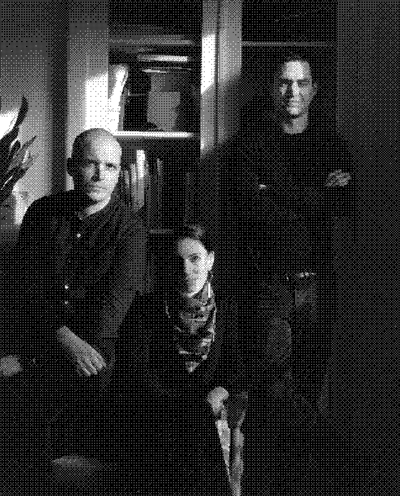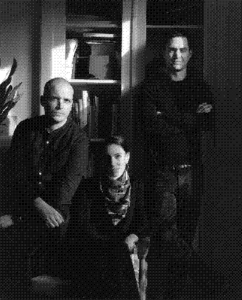References Development Strategy Advice Management Prospective Creativity Clients Communication Process Prospection Work culture Competition Presentation Design Typography Agents Advertising Ai Finance Architecture Investment Education Cgi Trend Fashion Recruitment Graphic design Nft Music Marketing Photography Sound design Research Blockchain Sustainability Crypto Technology Metaverse
19 excerpts on the topic “Competition”
[…] I try not to focus on other studios. I try to exist in a world where I’m not constantly comparing myself. For a long time, I used to look at the competition, at others who were doing similar work, and I tried to model myself after what they were doing to be more competitive, to sort of “win” or outdo them in some way. I think the idea of competition often brings with it this mindset of being better or worse, of getting the job or not getting it, of winning or losing. But I’ve stopped seeing things that way. What I’ve realized is that the way I’ve started to change my perspective is by not participating in that game. Of course, there are projects we’ve gone after that we didn’t get, and I’ve seen them go to other people. But I’ve come to terms with it, thinking, “That wasn’t the one for us,” […]
[…] We’ve always been against it, not just because we’re a small team and don’t have the bandwidth, but because it’s simply unethical. Asking for unpaid work just shouldn’t be happening in this day and age. […]
[…] We no longer accept unpaid pitches and we have a very strict policy against it. But it wasn’t always like that. Occasionally we did take on free pitching when we thought there was an opportunity that was hard to pass. But what we’ve come to realize, post Covid and especially earlier in 2024 when the industry started to slow down a bit, is that the amount of free pitches was growing exponentially and it was almost becoming the new industry standard. It just felt wrong. […]
[…] Traditionally, the idea of pitching mainly comes from advertising. And pitching for a campaign for an idea and pitching for the type of work that we do - creating branding systems - is so different. It is almost impossible for us to solve complex brand system challenges without going through the proper process. […]
[…] Asking people to invest time, thought, and effort without financial compensation is an inherently unfair concept. We could easily have an entire discussion on why pitching is flawed. At the same time, it’s important to recognize that refusing to participate is a privilege—not everyone has the luxury to take that position. […]
[…] SE
We don’t pitch anymore (…) You don’t solve the problem. It’s not a problem-first thing, it’s a solution-first thing. If you go from a problem-first perspective then the problem is that you actually have to understand what’s going on. And you can only do that in a super tight collab with the client. You may have really slick aesthetics or cool ideas, but it doesn’t justify it. I don’t want to work three weeks on something and then do the magic presentation and the client goes, “Wow, we love it!” or “Ah, that’s okay.” I think it’s not in our DNA anymore to pitch. And it doesn’t come from an ego place. I generally don’t think we can solve or do anything for you by pitching. We’ve pitched and won, and then we did something completely different: not the pitch brief. So there’s no point in pitching really. […]
We don’t pitch anymore (…) You don’t solve the problem. It’s not a problem-first thing, it’s a solution-first thing. If you go from a problem-first perspective then the problem is that you actually have to understand what’s going on. And you can only do that in a super tight collab with the client. You may have really slick aesthetics or cool ideas, but it doesn’t justify it. I don’t want to work three weeks on something and then do the magic presentation and the client goes, “Wow, we love it!” or “Ah, that’s okay.” I think it’s not in our DNA anymore to pitch. And it doesn’t come from an ego place. I generally don’t think we can solve or do anything for you by pitching. We’ve pitched and won, and then we did something completely different: not the pitch brief. So there’s no point in pitching really. […]
[…] A pitch is something that a group of people will need to agree upon. Nobody takes a risk. Good ideas require risk, also of the client, who should put their reputation on the line too. That would never happen with a pitch. At best it’s a shot in the dark, at worst it encourages mediocrity. […]
[…] What is interesting is to talk with the client. And go search among the references, and immerse oneself in the project a hundred percent. When you’re competing, you can’t do that. Clients don’t have the time to see you. To come up with something good for a competition is really tough. You never go far enough. […]
[…] OK
The ethics also are a key issue, but if there is a good reason or an important reason why a competitive led approach is crucial, then we are open-minded in theory. […]
The ethics also are a key issue, but if there is a good reason or an important reason why a competitive led approach is crucial, then we are open-minded in theory. […]
[…] V
on the one hand we want to show as much as we can to be convincing, on the other hand we don’t want to be boring or turn anybody off and present the client with something too precise that might stifle the project during its developmental phase. […]
on the one hand we want to show as much as we can to be convincing, on the other hand we don’t want to be boring or turn anybody off and present the client with something too precise that might stifle the project during its developmental phase. […]
[…] V
Nowadays we maintain critical distance to what and why we produce what we produce. We use our energy wisely and if we come up with good ideas that are rejected, we set them aside for a rainy day. […]
Nowadays we maintain critical distance to what and why we produce what we produce. We use our energy wisely and if we come up with good ideas that are rejected, we set them aside for a rainy day. […]
[…] MD
It’s always dangerous to present ideas and mock‑ups in a pitch. […]
It’s always dangerous to present ideas and mock‑ups in a pitch. […]
[…] Presenting ideas has to be as straight and direct as possible. […]
[…] Every brand or collaborator is different in the way we deal with them. You have to build trust with them and build a conversation where they understand your creative thinking and your problem solving. They must be willing to take the risk. And you have to show them why it’s important to take risks. […]
[…] On the rare occasions when we do pitch we always tell the client that we don’t like this kind of thing and that the end result will necessarily reflect our reluctance. […]
[…] If you’ve been working with a certain client for a while and he asks you to pitch, you can’t say no. […]
[…] If it’s a well-paid pitch – sometimes pitches are really well-paid – then we might do it. I think that’s totally OK. Unpaid pitches, almost never. […]
[…] Doing a more strategic pitch and getting to know each other in mentality and way of working is really good. But I don’t believe in creative pitches. We believe in really working together with a client, having access, really learning to understand them. You cannot develop the best answer in splendid isolation. […]
[…] I don’t think designers should pitch; I don’t think directors should write treatments. If you like somebody’s work, you should hire them and you should take a chance with them. That’s how it works. […]

